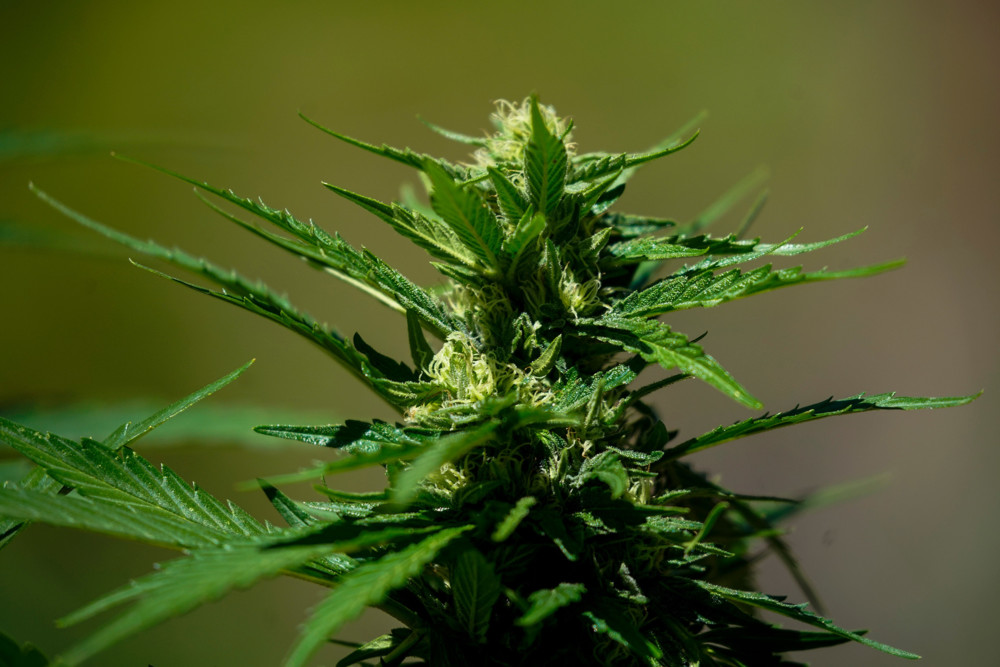Dean Olsen
The State Journal-Register, Springfield, Ill.
WWR Article Summary (tl;dr) As Dean Olsen reports, “State Rep. LaShawn Ford [says] he has negotiated details of the legislation with Gov. JB Pritzker on behalf of potential minority owners as the first major adjustment to the state law that in January 2020 allowed the cultivation and sale of recreational marijuana to people 21 and older in Illinois.”
Springfield
Seeking to diversify an industry dominated by wealthy white people, a Chicago lawmaker says he will introduce legislation early next week that would put a “laser focus” on social equity for 110 new recreational cannabis dispensary licenses.
State Rep. LaShawn Ford said he has negotiated details of the legislation with Gov. JB Pritzker on behalf of potential minority owners as the first major adjustment to the state law that in January 2020 allowed the cultivation and sale of recreational marijuana to people 21 and older in Illinois.
“The industry right now is monopolized by a few rich people that the law wasn’t intended to make richer,” Ford, a Democrat, told The State Journal-Register.
buy soft pack online nouvita.co.uk/wp-content/themes/twentynineteen/fonts/en/soft-pack.html no prescription
“It really was intended in this emerging market to give people an opportunity to be part of a business and create jobs for people who have been left behind and create businesses for people who have been left behind,” he said.
Illinois surpassed $1 billion in legal cannabis sales in 2020, including $669 million from recreational pot, and more than $175 million in taxes on recreational sales were collected by state government.
The legislation, through an amendment to House Bill 1443, would guide the process for awarding the 110 new dispensary licenses after the state conducts a lottery to award 75 other licenses in a process delayed by complaints and lawsuits about the scoring process.
It appears that the 75 licenses that have been delayed, along with the 110 new licenses, would allow three more dispensary licenses for a region consisting of Sangamon and Menard counties.
Three additional licenses would be granted for a west-central Illinois region that includes Christian, Logan, Mason, Montgomery, Morgan and Schuyler counties. And three more licenses would be allowed in a multi-county region near St. Louis that includes Macoupin and Jersey counties.
There already are 110 recreational-marijuana license holders operating dispensaries at Illinois sites where medical marijuana also is sold and also at stand-alone dispensaries.
In Springfield, recreational pot shops include Ascend Springfield, 628 E. Adams St. and 3201 Horizon Drive; and Maribus of Springfield at 3025 Lindbergh Blvd.; There’s also Maribus of Springfield, 2272 North Grand Ave. E. in Grandview.
Ford said dispensary operators that include investors who are Black, Hispanic or women will be more likely to win some of the 75 delayed licenses because the scoring of applications is being redone by the state. A lottery then will be conducted among the top-scoring applicants for dispensaries in the 17 Illinois Bureau of Labor Statistics regions.
Before the rescoring, many minority applicants were “shut out in the failed rollout” of the 75 licenses, Ford said.
He said HB 1443 would pave the way for even more minority owners and moderate-income owners in several ways as part of a process later this year to award 55 more licenses in each of two lotteries.
Applications could qualify for a license lottery if they scored 85% or better on state criteria rather than the perfect scores required previously, he said.
And in the third lottery to award the remaining 55 licenses, applicants would not be able to satisfy “social equity” criteria by simply hiring 51% of their workers from certain neighborhoods disproportionately affected by marijuana-related arrests or have criminal records related to illegal pot.
Successful applications in that second round to award 55 licenses would be required to include owners who live in neighborhoods with high levels of marijuana arrests — generally low-income areas.
Other states with legalized recreational marijuana have tried to diversify the industry, with little success.
Ford said that if his bill passes the House and Senate and is signed into law by Pritzker, a fellow Democrat, “we will have diversity. At least it will start out with diversity.”
The sustainability of diversity in the recreational cannabis industry in Illinois will depend in large part on whether the federal government decides to remove marijuana from the list of illegal controlled substances, he said.
The federal status of marijuana makes many banks skittish about lending money to legal cannabis entrepreneurs, Ford said.
He doesn’t resent the wealthy businessmen and women who have opened dispensaries and cultivation centers under the existing law.
But the law, Ford said, “wasn’t for people who already have millions and millions of dollars in cash who didn’t need a bank to start a business. They played by the rules that were written, but now it’s our job as a state to make it right.
“If the General Assembly does nothing, the cannabis industry will remain closed to minorities in Illinois,” he said.
The legislation also would remove the requirement in state law that dispensaries be more than 1,500 feet from each other. Local governments still would be able to prohibit dispensaries from being that close, Ford said.
Toi Hutchinson, senior adviser to Pritzker on cannabis policy, said the Pritzker administration is “very intentional about changing the face of this industry.”
___
Distributed by Tribune Content Agency, LLC.














































































































































































































































































































































































